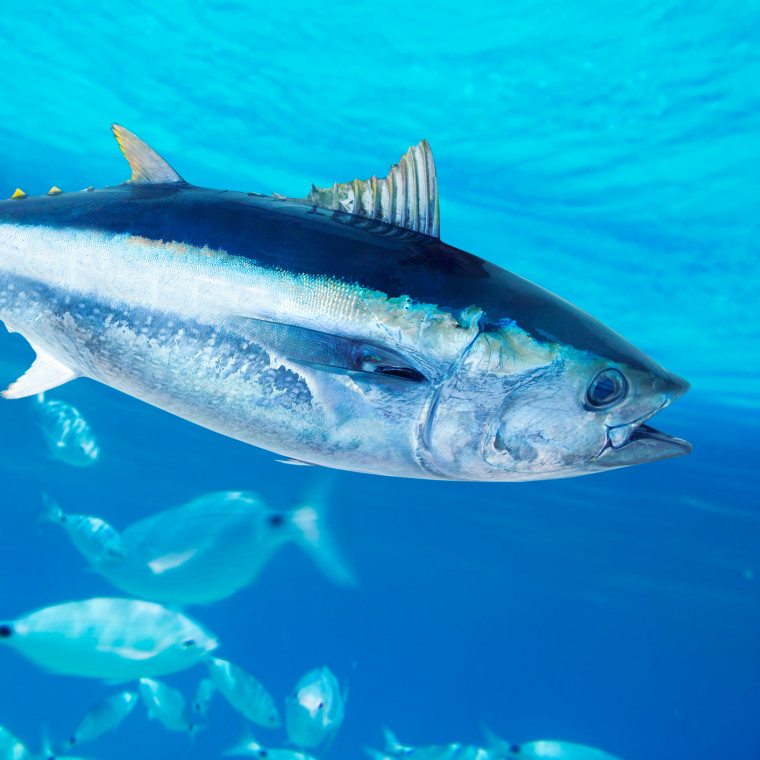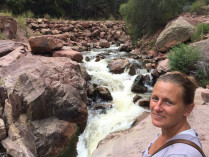Rethinking Sustainability for World Aquatic Animal Day
Open gallery

The number of fish killed for food is so vast that measurements are reported in tons rather than numbers of individual animals. Yet advocates, lawyers, and scientists regularly overlook aquatic animals in their advocacy and research. In its latest report, the Food and Agriculture Organization (FAO) notes that 179 million tons of aquatic animals were caught in the wild or farmed in 2018. Of this total, 156 million tons were used for human consumption, while the remaining 22 million tons were destined for nonfood uses (mainly to produce fishmeal and fish oil).
Notably, these numbers do not include the millions of aquatic animals who were unintentionally or illegally killed by the fishing industry, pollution, warming oceans, lack of food, ship strikes, and other human-caused impacts. All of these aquatic animals remain at risk because they continue to be left out of the legal and regulatory frameworks that provide at least some protection to some terrestrial animals.
Despite the concerning rate of aquatic animal slaughter, governments across the world are promoting an increase in seafood consumption. For example, the United States’ “Eat Seafood, America!” campaign is working to boost consumption by suggesting that consumers make a sustainable choice even when they purchase seafood from a U.S. fish stock that is listed as overfished. (“The ‘overfished’ designation means that stock is managed to increase, or rebuild, the stock size while still supporting sustainable annual harvests. Therefore, you are still making a sustainable seafood choice if you purchase seafood from a U.S. fish stock that is listed as overfished.”; see also NOAA Fisheries, Understanding Sustainable Seafood (discussing the restricted harvest levels in response to a question about sustainability). In spite of decades of overfishing and the decimation of ocean fisheries, governments are pushing for expanded industrial aquaculture and presenting industrial fish farming as a sustainable solution to overfishing. The aquaculture industry bolsters this message by consistently promoting aquaculture as “the key to assuring future sustainable world fish supplies” that relieves “pressures on over-exploited marine resources.”
However, industry supporters neglect to mention the hundreds of millions of animals taken from the wild and bred every year to feed the animals raised in aquaculture facilities, or the many harms associated with their industrial practices.
Despite the harms, governments promote offshore aquaculture as a relatively low-risk, sustainable means of food production. In one example, NOAA (National Oceanic and Atmospheric Administration) Fisheries has spent more than $130,000 assisting the Velella Epsilon’s experimental fish farm off Florida’s west coast with permitting, research, and promotion. At the same time, the seafood industry and governments are also fighting efforts to develop alternatives that would eliminate the need to continue killing these animals.
Global aquaculture production resulted in 82 million tons of dead fish and aquatic animals in 2018. If true sustainability for aquatic animals as well as people is our goal, it is imperative that we rethink and redefine what it means to be sustainable in our world today. A better definition would incorporate the needs of future generations of aquatic animals rather than focusing solely on the needs of future generations of humans.
World Aquatic Animal Day 2022 will consider the myth of sustainability in fishing and aquaculture by taking a closer look at the challenges aquatic animals face and discussing ways to improve legal frameworks that can better protect aquatic species as well as offering alternatives to their use. The event will host speakers from diverse backgrounds with the ultimate aim of discovering a path to a truly sustainable and desirable future for aquatic animals. Details and registration for the event, including a virtual, free webinar (approved for 3.25 CLE credits by the Oregon State Bar) can be located here. Please join us!


The Center for Animal Law Studies (CALS) was founded in 2008 with a mission to educate the next generation of animal law attorneys and advance animal protection through the law. With vision and bold risk-taking, CALS has since developed into a world-renowned animal law epicenter, with the most comprehensive animal law curriculum offered anywhere. In addition, CALS is the only program that offers an advanced legal degree in animal law and a Master of Studies degree for non-lawyers (both degrees offered in-person and online) and three specialty animal law clinics. CALS is a nonprofit organization and is only able to provide these educational opportunities through donations and grants.
More Center for Animal Law Studies Stories
Center for Animal Law Studies is located in Wood Hall on the Law Campus.
MSC: 51
email cals@lclark.edu
voice 503-768-6960
Center for Animal Law Studies
Lewis & Clark Law School
10101 S. Terwilliger Boulevard MSC 51
Portland OR 97219

